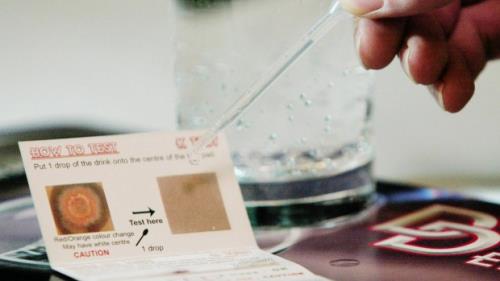Breaking the Habit: firing staff with drug and other addictions is not the only option
5 April 2017

Addiction is a silent and sometimes deadly disorder.
A significant section of the populace struggles with some form of addiction, and almost everyone is affected by it in one way or another.
Drugs and alcohol are the obvious addictions that most of us are aware of. But it is possible to be addicted to a wide range of things, including gambling, sex, or food.
Employers can implement drug and alcohol testing regimes, particularly in areas of work involving public safety.
There has been recent publicity about an increasing number of white-collar job-seekers testing positive for methamphetamine.
The Drug Detection Agency reported that methamphetamine was the second most detected drug in 2016, making up about 13.4 per cent of all positive pre-employment drug tests.
Cannabis, not surprisingly, accounted for 81.3 per cent of all positive tests.
The agency also said that it had noticed an increase in positive tests in the public sector, the tourism sector, and the professional service sector.
New Zealand Drug Foundation executive director Ross Bell has encouraged employers to focus on creating a supportive working environment, rather than subjecting workers, or job seekers, to drug tests.
Bell astutely noted that implementing drug testing can have a corrosive effect on trust between employers and their employees.
He emphasised the primary importance of building trust, strong values and having a good culture and environment based around health and safety in the work place.
Gambling addiction in the workplace has also gained attention lately. The Gisborne Herald reported that the manager of a gambling venue was convicted of the theft of about $35,000 of pokie takings, which he then gambled back into the machines.
New Zealand has a number of casinos, and many pokie machines. Gambling venues are supposed to train staff to recognise the signs of gambling harm and know how to help.
Yet, this manager seems to have suffered the negative effects of addiction, resorting to crime to fund her gaming.
Many employers elect to test prospective employees for substance abuse, particularly when the role intersects with public safety, such as bus drivers and airline pilots.
But other problematic addictions such as gambling are more difficult to screen for. Pre-employment drug testing and the grounds for testing existing employees for addictive substances are discussed from time to time.
What is not often discussed is how employers should respond when they become aware that an employee is struggling with substance abuse or another addiction.
The unauthorised use of drugs and alcohol at work, or in circumstances where it affects an employee while at work, is likely to justify dismissal.
All the more so when the employee's behaviour is significantly affected, where public safety is at risk, or where there is a negative effect on the employer's business.
Many employers will have a code of conduct that defines such drug induced behaviour as serious misconduct, particularly in safety-sensitive industries.
Regardless, an employer must, as always, carry out a proper investigation that provides the employee with the benefits of natural justice before reaching a decision that an employee is guilty of serious misconduct.
There are many employers who have a rehabilitation element in their employee assistance programme. Air New Zealand, which obviously has a concern for the safety of its passengers, has such a policy.
One case involved an Air New Zealand cargo worker who failed a drug test. It transpired that he had smoked cannabis at least once per day for the previous two years and "off and on all his adult life".
Air New Zealand's drug and alcohol policy included considerations such as the company attempting to find suitable alternative employment in a non-safety sensitive role.
Significantly, the policy also included the possibility of the employer and employee agreeing to a rehabilitation agreement.
A rehabilitation agreement is a way for the employer to support the employee back to health and unimpaired employment. It generally involves agreeing to certain expectations that the employee will meet such as ongoing appointments with professional counsellors and therapists and drug-testing in the future.
In other words the employee must commit to change to a drug-free way of life.
In the case of the cargo worker, Air New Zealand considered rehabilitation, but the worker's unwillingness to accept that he had a problem with alcohol, which also formed part of the issue, meant that Air New Zealand considered rehabilitation was not likely to be successful.
It therefore did not offer rehabilitation and instead dismissed the cargo worker.
The Employment Court ruled that the dismissal was justified. Addictions that are not substance-related, such as gambling, are more difficult to identify and often become visible to the employer in different ways.
Sometimes they are likely to come into the open through stealing from the employer to fund the habit, as seen in the Gisborne case, or by spending work time in active addiction.
Theft of money and even employer time will often be serious misconduct. As discussed, the employer should investigate properly before arriving at that conclusion.
Good employers should also bear in mind that the individual is struggling with a serious issue and should be supported and directed to professional help.
Employers that have a programme of rehabilitation available through their employee assistance programme are to be congratulated.
It is so much better to give the employee an opportunity to rehabilitate themselves and allow the employer to retain the benefit of the employee's experience and often even deeper loyalty to the business.


